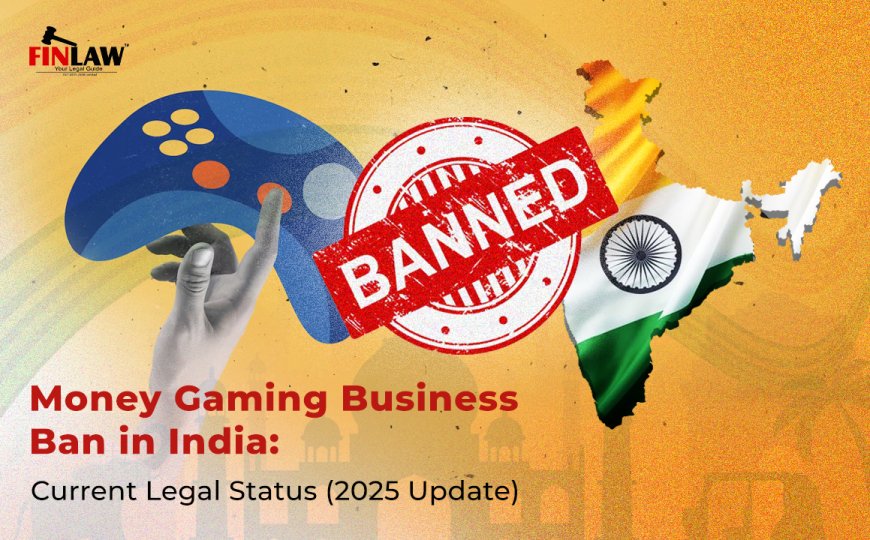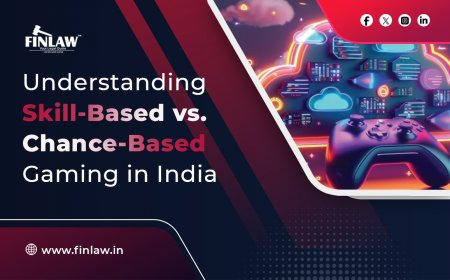Online Gaming Business (Money Gaming) Ban in India: Current Legal Status (2025 Update)
Explore the 2025 online gaming business ban in India, its impact, legal challenges, and future prospects for skill-based and esports platforms.

Introduction
India's online gaming industry has experienced exponential growth over the past decade, transforming from a niche market into a multibillion-dollar sector. However, recent legislative developments have significantly altered the landscape, particularly concerning real-money gaming platforms. This article delves into the current legal status of online gaming businesses in India as of 2025, examining the implications of the new regulations, industry reactions, and ongoing legal challenges.
The Promotion and Regulation of Online Gaming Act, 2025
On August 22, 2025, the Indian Parliament enacted the Promotion and Regulation of Online Gaming Act, 2025, following its passage in both the Lok Sabha and Rajya Sabha. The Act aims to regulate online gaming activities, with a particular focus on prohibiting real-money gaming platforms. Key provisions include:
-
Ban on Real-Money Gaming: The Act criminalizes the offering, promotion, and advertisement of online money gaming services. Offenders may face imprisonment of up to three years and fines up to ₹1 crore for first-time offenses, with repeat offenders liable for up to five years in prison and fines up to ₹2 crore.
-
Regulatory Authority: The establishment of the National Online Gaming Commission (NOGC) to oversee licensing, compliance, and dispute resolution within the industry.
-
Promotion of Non-Monetary Gaming: The Act encourages the development of esports and social gaming platforms, aiming to foster a safer and more sustainable gaming environment.
Industry Impact and Company Responses
The enactment of the Online Gaming Act has had profound effects on various stakeholders within the industry:
Company Closures and Operational Shifts
-
Hike: Once a prominent messaging and gaming app, Hike announced its global shutdown, attributing the decision to the regulatory challenges posed by the new gaming laws.
-
Flutter Entertainment: The parent company of Junglee Games ceased its real-money gaming operations in India, citing the new legal framework as a significant factor in its decision.
Workforce Reductions
-
Games24x7: The company announced plans to lay off approximately 70% of its workforce, translating to around 500 employees, due to the adverse impact of the gaming ban on its operations.
-
Mobile Premier League (MPL): MPL disclosed intentions to reduce its Indian workforce by 60%, affecting about 300 employees, as a direct consequence of the ban on paid gaming services.
Legal Challenges and Industry Pushback
The new legislation has faced criticism from various quarters, particularly from companies that argue their platforms are skill-based rather than games of chance. Notably:
-
A23: An Indian gaming company, A23, has initiated a legal challenge against the government's ban on online money-based games, marking the first significant legal opposition to the new law.
-
Industry Concerns: Critics argue that the blanket ban on real-money gaming fails to distinguish between games of skill and chance, potentially stifling innovation and driving users to unregulated offshore platforms.
Government's Rationale and Public Sentiment
The Indian government has defended the new regulations, emphasizing the need to protect citizens from the psychological and financial risks associated with online gambling. Federal IT Minister Ashwini Vaishnaw stated that it is the government's duty to take strict action against social evils, including online gambling, which can lead to addiction and financial ruin.
Public sentiment appears to be divided. While some support the government's stance on curbing gambling-related harms, others express concerns about the potential overreach of the new regulations and their impact on legitimate gaming businesses.
Future Outlook
The future of online gaming businesses in India hinges on several factors:
-
Legal Developments: Ongoing legal challenges will play a crucial role in determining the extent to which the new regulations are enforced and whether any modifications to the Act occur.
-
Industry Adaptation: Companies may need to pivot their business models to align with the new legal framework, focusing on non-monetary gaming options such as esports and skill-based games.
-
Government Engagement: Continued dialogue between the government and industry stakeholders will be essential to create a balanced regulatory environment that protects consumers while fostering innovation.
Conclusion
The enactment of the Promotion and Regulation of Online Gaming Act, 2025, represents a significant shift in India's approach to online gaming regulation. While the government's intent to protect consumers from gambling-related harms is clear, the broad application of the ban has raised concerns within the industry. As legal challenges unfold and companies adapt to the new landscape, the future of online gaming businesses in India remains uncertain, with the potential for both positive and negative outcomes depending on subsequent developments.
For stakeholders within the online gaming industry, staying informed about legal proceedings and regulatory updates will be crucial in navigating the evolving landscape.
What's Your Reaction?



















